Deliverables
Deliverables stemming from the work conducted in the frame of the CHANGER project will be made available on this page.

Deliverables stemming from the work conducted in the frame of the CHANGER project will be made available on this page.
The deliverable will summarise the administrative and management processes to be enabled during the implementation of the project, including the ways that progress is monitored, conflicts are resolved, and risks are recognised and mitigated.
A report for the 1st reporting period of the project with information on our results and outcomes geared towards the policy makers and engage with the other projects from our cluster.
The project’s Data Management Plan will analyse in detail the ways that data will be managed in the context of WIDERA: it will specify all types of data expected to be collected, processed and generated; it will outline the methods and processes that will be put in place for each data type in order for it to be managed in accordance with all relevant regulations as well as ethical, openness and FAIRness principles. It will also include the Ethical, Gender, Legal and Security Compliance Framework that will be mobilised in the context of the project. The report will be continuously updated throughout the duration of CHANGER, to accommodate new knowledge and developments as the project matures.
The deliverable will present the dissemination and communication plan of WIDERA, highlighting key messages, targeted stakeholders, relevant venues and network to be approached, as well as the overall methodology for reaching out and engaging the different audiences. It furthermore will define the KPIs for measuring the success of the different activities planned. Finally, it will present the actions and achievements related to dissemination and communication during the 1st reporting period and assess them against the reported plan and KPIs.
D2.1 will report on the results of a scoping review on the challenges posed by current ethics reviews in a changing research environment. In particular, it will include a systematic mapping of the scientific literature and gray sources, including EU-funded research projects and professional organizations (e.g. EUREC, ALLEA, ENERI, iRECs) and international resources about the challenges faced by ethics review bodies, as well as best practices, regarding new technologies, new players, new forms of collaboration and partnerships, new human rights related framework. The scoping review will make use of a Large Language Model (LLM) tool such as GPT4, to analyze the large volume of relevant literature.
D2.2 will be reporting on the findings of stakeholder consultations that will be performed in a cross-country and multilevel interview study in order to identify best practices and experiences from different RECs in Europe and non-EU countries, to understand their role and practical approaches to the challenges in ethics reviews, particularly the strengths and weaknesses of the current approaches and potential solutions. D2.2. will also include the findings of a cross-country and cross-disciplinary focus group study of EU ethics review experts aiming to identify experiences and approaches, as well as possible solutions to ethics challenges in the changing research environment.
Based on the findings by the scoping review, as well as on the cross-country stakeholder interview study and focus group study, D2.3 will formulate recommendations on the way forward to ethics reviews, in order to overcome challenges regarding new technologies, new players, new forms of collaboration and partnerships, new human rights related framework.